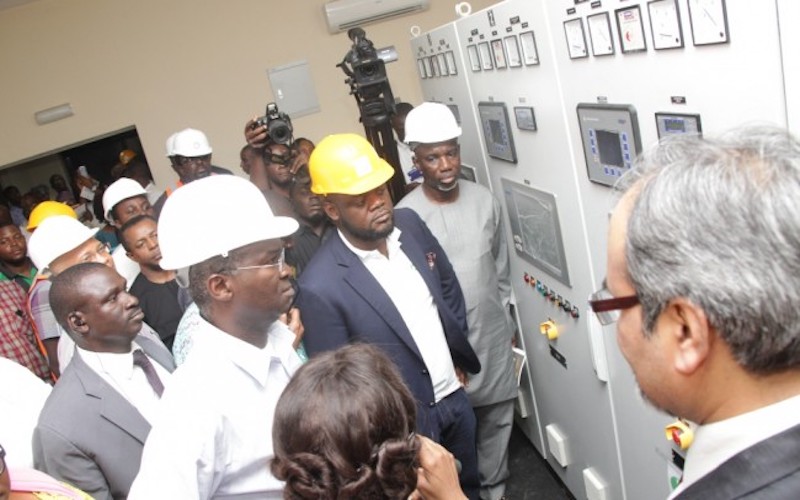Babatunde Fashola, minister of works, power, and housing, says the power being generated currently in Nigeria is higher than the carrying capacity of electricity distribution companies.
The minister disclosed this Monday while speaking at the 18th monthly power sector stakeholders meeting hosted by Kano electricity distribution company, describing the situation as a serious challenge to efforts made by the government on generation.
“It is a serious problem that the distribution companies do not have enough carrying capacity to accommodate more of the generated electricity due to one reason or the other,” he said.

According to the minister, power generation has increased to 6,863 megawatts in 2017, attributing the increase to efforts made by the government to end vandalism of gas pipelines.
However, businessamlive learnt that electricity generation has been averaging 2,798 Megawatts (MW) in the last two weeks.
According to data by the Nigerian Electricity System Operator, an arm of the Transmission Company of Nigeria (TCN), seen by Businessamlive, power generation, in the past weeks have dropped, fluctuating between 2,387mw and 3,007mw. However, the total energy sent out as at yesterday amount to 77,571.12 MW.
The minister also disclosed to the gathering that the Federal Government is working earnestly to improve power supply in the country as it has approved a loan of N39 billion to enable electricity distribution companies (Discos) supply prepaid meters.
He said the gesture is part of the power sector recovery programme aimed at ensuring uninterrupted power generation and distribution.
“It is also aimed at ending the series of complaints by consumers who applied for meter but were not supplied at the appropriate time.”
Fashola said successful implementation of the recovery programme would resolve the conflict between electricity distributors and consumers over tariff collection.
The federal government had earlier approved a fund of N701 billion to complement the payment deficits made by Discos.
The poor performance of Nigeria’s power sector resulting in unstable electricity supply and frequent blackouts has until the disclosure by the minister that the distribution companies lack carrying capacity been laid squarely on generating capacity.
Godwin Idemudia, general manager, corporate communications, Eko Electricity Distribution Company (EKEDC), told businessamlive that his company working tirelessly to improve power supply to customers in its coverage area, that the company is currently upgrading facilities for improved power supply.
“We are presently upgrading all our facilities to increase power supply as well as embarking on sensitization programmes on safety issues this season,” he said.
He, therefore, appealed to electricity consumers to assist the power sector by prompt payment of bills.
Over the past decades, successive governments have endeavoured to tackle Nigeria’s energy deficit problem by maintaining a monopoly in power provision and pumping money into the poorly managed sector.
However, in 2013, the sector was privatized, which birthed generating and distribution companies, with transmission segment still being managed by the government.








